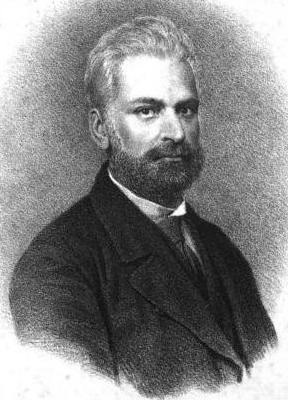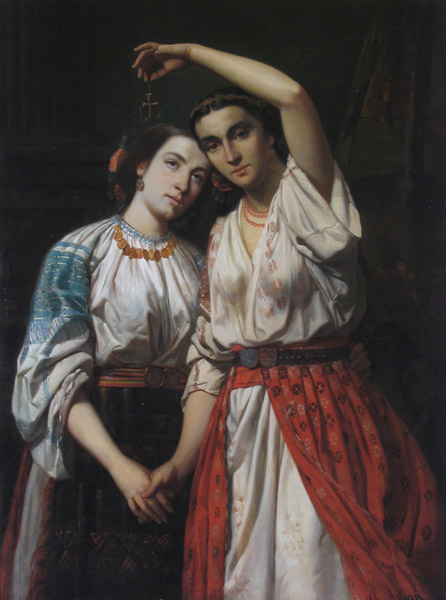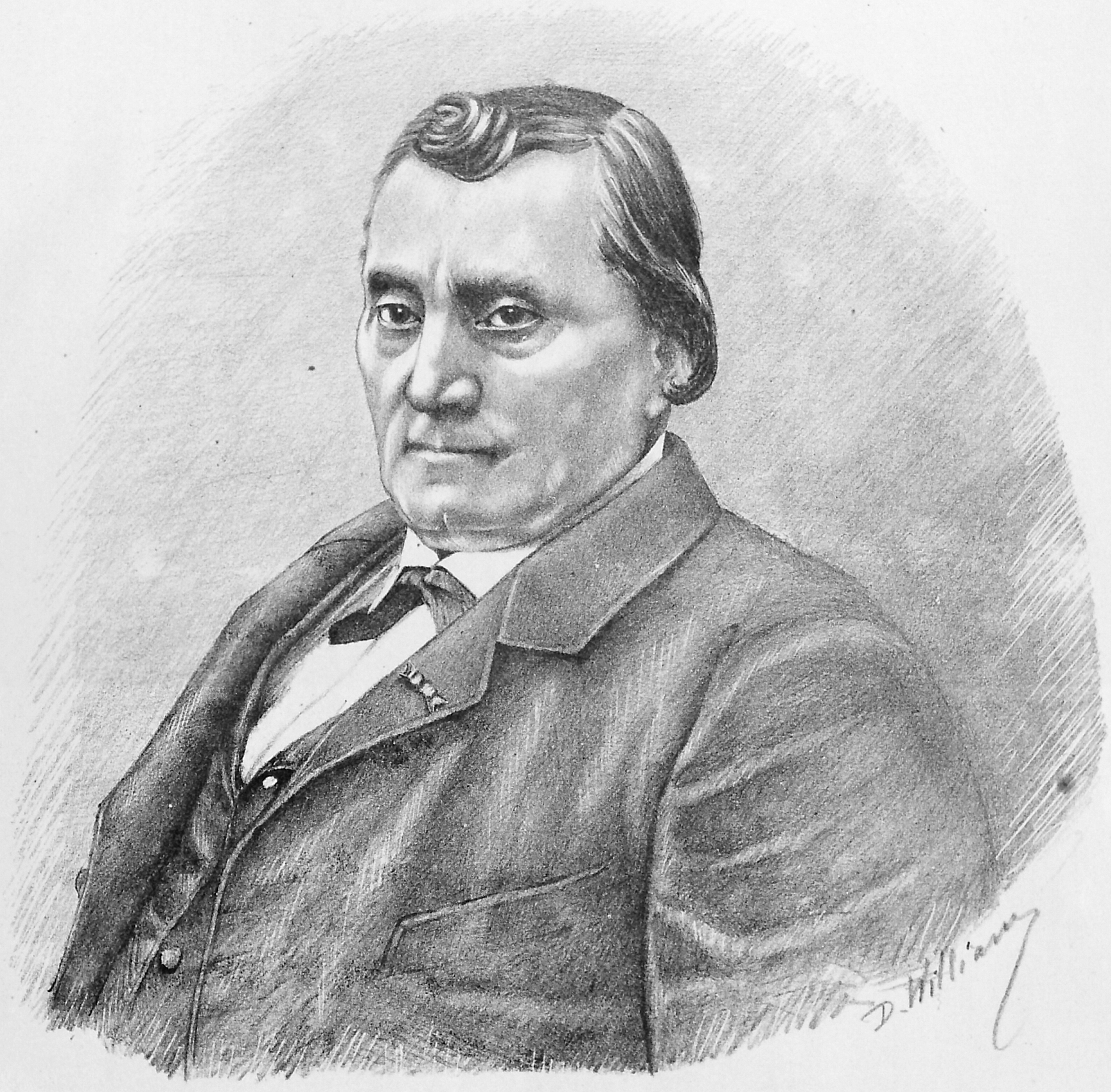|
Eufrosina Marcolini
Eufrosina Popescu (October 20, 1821, Bucharest–1900, Fetești) was a Wallachian, later Romanian stage actor. She belonged to the first generation of professional actors in Romania. A native of Bucharest, her parents were the ''boyar'' Vlasto and his wife Maria. At the age of sixteen, she married the army officer Theodor Popescu.Teodor Bălan, ''Istoria teatrului românesc în Bucovina'', p. 97. Editura Academiei Române, 2005, She studied music and acting at '' Societatea filarmonică'', the first dramatic school in Romania, established by Costache Aristia, the pioneer and founder of the Romanian theater, in 1833. Alongside Costache Caragiale, she belonged to the first generation of professional actors educated there, and active in Romania. She performed parts within the Romanian drama of Vasile Alecsandri, V.A. Urechia, Gheorghe Sion and Alexandru Macedonski, as well as classical international plays. Under the name ''Eufrosina Marcolini'', she also toured Europe, especi ... [...More Info...] [...Related Items...] OR: [Wikipedia] [Google] [Baidu] |
Bucharest
Bucharest ( , ; ro, București ) is the capital and largest city of Romania, as well as its cultural, industrial, and financial centre. It is located in the southeast of the country, on the banks of the Dâmbovița River, less than north of the Danube River and the Bulgarian border. Bucharest was first mentioned in documents in 1459. The city became the capital of Romania in 1862 and is the centre of Romanian media, culture, and art. Its architecture is a mix of historical (mostly Eclectic, but also Neoclassical and Art Nouveau), interbellum ( Bauhaus, Art Deco and Romanian Revival architecture), socialist era, and modern. In the period between the two World Wars, the city's elegant architecture and the sophistication of its elite earned Bucharest the nickname of 'Paris of the East' ( ro, Parisul Estului) or 'Little Paris' ( ro, Micul Paris). Although buildings and districts in the historic city centre were heavily damaged or destroyed by war, earthquakes, and even Nic ... [...More Info...] [...Related Items...] OR: [Wikipedia] [Google] [Baidu] |
Boyar
A boyar or bolyar was a member of the highest rank of the Feudalism, feudal nobility in many Eastern European states, including Kievan Rus', Bulgarian Empire, Bulgaria, Russian nobility, Russia, Boyars of Moldavia and Wallachia, Wallachia and Moldavia, and later Romania, Lithuanian nobility, Lithuania and among Baltic German nobility, Baltic Germans. Boyars were second only to the ruling knyaz, princes (in Bulgaria, tsars) from the 10th century to the 17th century. The rank has lived on as a surname in Russia, Finland, Lithuania and Latvia where it is spelled ''Pajari'' or ''Bajārs/-e''. Etymology Also known as bolyar; variants in other languages include bg, боляр or ; rus, боя́рин, r=boyarin, p=bɐˈjærʲɪn; ; ro, boier, ; and el, βογιάρος. The title Boila is predecessor or old form of the title Bolyar (the Bulgarian language, Bulgarian word for Boyar). Boila was a title worn by some of the Bulgars, Bulgar aristocrats (mostly of regional governors a ... [...More Info...] [...Related Items...] OR: [Wikipedia] [Google] [Baidu] |
Costache Aristia
Costache or Kostake Aristia (; born Constantin Chiriacos Aristia; el, Κωνσταντίνος Κυριάκος Αριστίας, ''Konstantinos Kyriakos Aristias''; transitional Cyrillic: Коⲛстантiⲛꙋ Aрiстia, ''Constantinŭ Aristia''; 1800 – 18 April 1880) was a Wallachian-born poet, actor and translator, also noted for his activities as a soldier, schoolteacher, and philanthropist. A member of the Greek colony, his adolescence and early youth coincided with the peak of Hellenization in both Danubian Principalities. He first appeared on stage at ''Cișmeaua Roșie'' in Bucharest, and became a protege of Lady Rallou. She is claimed to have sponsored his voyage to France, where Aristia became an imitator of François-Joseph Talma. Upon his return, Aristia took up the cause of Greek nationalism, joining the Filiki Eteria and flying the "flag of liberty" for the Sacred Band. He fought on the Wallachian front during the Greek War of Independence, and was prob ... [...More Info...] [...Related Items...] OR: [Wikipedia] [Google] [Baidu] |
Costache Caragiale
Costache Caragiale (; 29 March 1815 – 13 February 1877) was a Romanian actor and theatre manager who had an important role in the development of the Romanian theatre. Born in Bucharest, Wallachia, he made his stage debut in 1835 and, in 1838, organized a theatre company in Iaşi, Moldavia, which became part of the first Romanian National Theatre. He worked in many Romanian regional theatres, especially in Iaşi, Craiova and Botoşani, and encouraged the usage of plays by Romanian dramatists of the day, especially those of Vasile Alecsandri and Constantin Negruzzi. Between 1852 and 1855, Costache Caragiale was the first director of the National Theatre of Bucharest. He also wrote a few comedies, such as ''O repetiţie moldovenească'' – ''A Moldavian Rehearsal'' (1844) and ''O soaré la mahala'' (''A Soiree in the Neighbourhood''). He is the uncle of Ion Luca Caragiale Ion Luca Caragiale (; commonly referred to as I. L. Caragiale; According to his birth certificate, p ... [...More Info...] [...Related Items...] OR: [Wikipedia] [Google] [Baidu] |
Vasile Alecsandri
Vasile Alecsandri (; 21 July 182122 August 1890) was a Romanian patriot, poet, dramatist, politician and diplomat. He was one of the key figures during the 1848 revolutions in Moldavia and Wallachia. He fought for the unification of the Romanian Principalities, writing "Hora Unirii" in 1856 and giving up his candidacy for the title of prince of Moldavia, in favor of Alexandru Ioan Cuza. He became the first minister of foreign affairs of Romania and was one of the founding members of the Romanian Academy. Alecsandri was a prolific writer, contributing to Romanian literature with poetry, prose, several plays, and collections of Romanian folklore, being considered, alongside Mihai Eminescu, which admired and was inspired by the writings of Alecsandri, as one of the most important Romanian writers in the second half of the 19th century. Early life Origins and childhood Alecsandri was born in the Moldavian town of Bacău and he was of Greek origin. His parents were Vasile Alecsandri ... [...More Info...] [...Related Items...] OR: [Wikipedia] [Google] [Baidu] |
Gheorghe Sion
Gheorghe Sion (May 22, 1822 – October 1, 1892) was a Moldavian, later Romanian poet, playwright, translator and memoirist. He was born in Mamornița to ''paharnic'' (royal cup-bearer) Ioniță Sion and his wife Eufrosina (''née'' Schina), the daughter of Filiki Eteria member Gheorghe Schina. His uncles included Constantin Sion, author of a semi-fictitious noble genealogy (''Arhondologia Moldovei''); and '' spătar'' Antohi Sion, the rumored author of ''Izvodul lui Clănău'', an outright forgery. After spending two years (1837-1839) at Saint Sava College in Bucharest, the capital of Wallachia, he returned to his native Moldavia. Entering the Iași-based provincial administration, he became a copyist at the Justice Department in 1842, followed by work as a clerk at the Interior Department. He became a wanted man for his participation in the 1848 revolution, and so fled to Austrian-ruled Transylvania. He returned to Iași in 1849, working as bureau chief at the Department of Chu ... [...More Info...] [...Related Items...] OR: [Wikipedia] [Google] [Baidu] |
Alexandru Macedonski
Alexandru Macedonski (; also rendered as Al. A. Macedonski, Macedonschi or Macedonsky; 14 March 1854 – 24 November 1920) was a Romanian poet, novelist, dramatist and literary critic, known especially for having promoted French Symbolism in his native country, and for leading the Romanian Symbolist movement during its early decades. A forerunner of local modernist literature, he is the first local author to have used free verse, and claimed by some to have been the first in modern European literature. Within the framework of Romanian literature, Macedonski is seen by critics as second only to national poet Mihai Eminescu; as leader of a cosmopolitan and aestheticist trend formed around his ''Literatorul'' journal, he was diametrically opposed to the inward-looking traditionalism of Eminescu and his school. Debuting as a Neoromantic in the Wallachian tradition, Macedonski went through the Realist- Naturalist stage deemed "social poetry", while progressively adapting his styl ... [...More Info...] [...Related Items...] OR: [Wikipedia] [Google] [Baidu] |
United Principalities
The United Principalities of Moldavia and Wallachia ( ro, Principatele Unite ale Moldovei și Țării Românești), commonly called United Principalities, was the personal union of the Principality of Moldavia and the Principality of Wallachia, formed on when Alexandru Ioan Cuza was elected as the ''Domnitor'' (Ruling Prince) of both principalities, which were autonomous but still vassals of the Ottoman Empire and which resulted in the unification of both principalities. On , Moldavia and Wallachia formally united to create the Romanian United Principalities, the core of the Romanian nation state. In February 1866, Prince Cuza was forced to abdicate and go into exile by a political coalition led by the Liberals; the German Prince Karl of Hohenzollern-Sigmaringen was offered the Throne and, on he entered Bucharest for the first time. In July the same year, a new constitution came into effect, giving the country the name of Romania; internationally, this name was used only afte ... [...More Info...] [...Related Items...] OR: [Wikipedia] [Google] [Baidu] |
Matei Millo
Matei Millo (; November 24/25, 1814 – September 9, 1896) was a Moldavian, later Romanian stage actor and playwright. Born in Stolniceni-Prăjescu, Iași County, his grandfather was the poet Matei Milu; his parents were Vasile Millo and Zamfira (''née'' Prăjescu). He was first educated by private tutors at home, then at a private boarding school in Iași from 1833 to 1834, followed by Academia Mihăileană from 1835 to 1836. While living in Paris from 1840 to 1845, he studied theatre, took private lessons, followed the great actors of the day (Frédérick Lemaître, François Jules Edmond Got, Hugues Bouffé, Pierre-Alfred Ravel) and probably played minor roles with French troupes. In 1846, after returning home, he began organizing the theatre in the Danubian Principalities, first at Iași until 1852, and then at Bucharest. From 1864 to 1866, he taught at the National University of Music Bucharest, Bucharest Conservatory, while in 1877 he established an associated artists' trou ... [...More Info...] [...Related Items...] OR: [Wikipedia] [Google] [Baidu] |
1821 Births
Eighteen or 18 may refer to: * 18 (number), the natural number following 17 and preceding 19 * one of the years 18 BC, AD 18, 1918, 2018 Film, television and entertainment * ''18'' (film), a 1993 Taiwanese experimental film based on the short story ''God's Dice'' * ''Eighteen'' (film), a 2005 Canadian dramatic feature film * 18 (British Board of Film Classification), a film rating in the United Kingdom, also used in Ireland by the Irish Film Classification Office * 18 (''Dragon Ball''), a character in the ''Dragon Ball'' franchise * "Eighteen", a 2006 episode of the animated television series '' 12 oz. Mouse'' Music Albums * ''18'' (Moby album), 2002 * ''18'' (Nana Kitade album), 2005 * '' 18...'', 2009 debut album by G.E.M. Songs * "18" (5 Seconds of Summer song), from their 2014 eponymous debut album * "18" (One Direction song), from their 2014 studio album ''Four'' * "18", by Anarbor from their 2013 studio album '' Burnout'' * "I'm Eighteen", by Alice Cooper commo ... [...More Info...] [...Related Items...] OR: [Wikipedia] [Google] [Baidu] |
_-_contrast.jpg)





